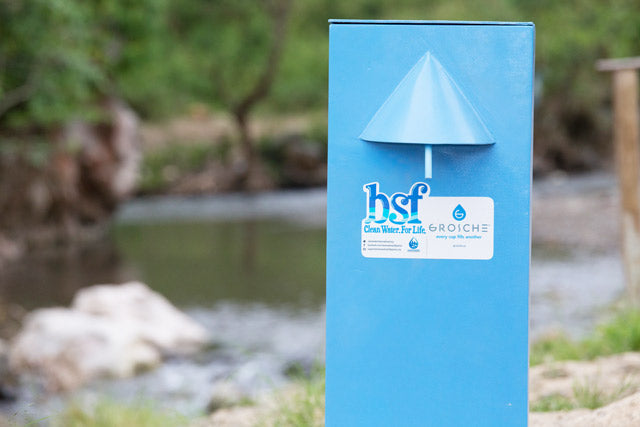Unlike black and green teas, white teas are often overlooked and underrated. Yet, the benefits of white tea are endless, containing the same, if not more than other teas from the same plant. In this post, we'll have a look a what white tea is, how it's made, where it comes from, white tea vs green tea as well as the loaded health benefits it provides.
What is White Tea?
This delicate tea originates from the Camellia Sinensis tea plant found commonly throughout China and other Asian nations. Yes, it's from the same plant that gave the world green and black tea.Why this fine tea is not as well known as its siblings remains a mystery. To us at GROSCHE and countless tea fans across the globe.
Despite their similar origins white tea normally has a lower caffeine content and contains more antioxidants than green tea. Tea enthusiasts favor this tea for its health and taste benefits though it could be pricier than other options.
White tea leaves are picked at a much younger age than other tea leaves. White tea leaves come from immature Camellia Sinensis leaves while green and black teas are from mature tea leaves. At the plant's budding stage farmers hand-pick the buds with care just before they fully open. A fuzz of silver hairs surrounds these buds which become white when dried. This is where the tea gets its name from.
The leaves must be handled with caution and can only be picked during a few days of early Spring. Like their taste, white tea leaves are a delicacy. Thus, white tea is rarer and is typically more costly than green tea.
How is White Tea Made?
White tea leaves are special as they are the least processed of all teas. Farmers harvest the plant, steam the leaves, and finally dry them to conclude the process. This is all done very quickly to prevent the tea from oxidizing. It also preserves a high antioxidant content.
The lack of processing white tea goes under keeps the tea leaf very close to its natural state. Because of this, white tea has more polyphenols and more anti-oxidants, providing that much more to drinkers.
What's in White Tea?
White tea benefits us in many ways. It is rich in antioxidants, polyphenols, catechins and other substances that make it a very healthy tea.
Antioxidants- Of all camellia sinensis teas, white tea undergoes the least amount of processing. As a result, this tea is the closest tea to its natural state and retains the most of its natural antioxidant content.
Catechins- White tea contains a variety of catechins including Epigallocatechin Gallate (EGCG) which is great for fighting chronic diseases such as cancer.
Tannins- This tea contains lower tannin levels than other teas which makes it less bitter and slightly sweet. Fortunately, tannins are still present in the tea providing drinkers with the associated health benefits.
Theaflavins (TFs)- TFs are lowest in White tea. Again, the lack of this gives tea its sweet flavour since theaflavins normally contribute to the bitterness and astringency of tea.
Origins of White Tea
White tea was accidentally discovered about 5,000 years ago in rural China. While traveling the country, emperor Shen Nung felt thirsty and asked for boiled water. Unfortunately, some leaves flew into the water being boiled for him. Fortunately, though, these were Camellia Sinensis tea leaves. It must have been magically brewed to perfection because the emperor took a sip and instantly liked the distinct flavour. With that, white tea was discovered and gained popularity across China. Centuries later, it became a staple on the global tea menu and you can now have it delivered with the click of a button.

ICEWINE- smooth Riesling ice wine notes & a luscious berry finish
What Does White Tea Taste Like?
White tea has a delicate, slightly fruity flavour. It does not have the grassy aftertaste of green tea nor the bold, tannin taste found in black tea. Some white teas have a natural floral taste while others contain hints of hay or chocolate. Tea producers often blend white tea with fruits, flowers and/or herbs to enhance flavour.
These flavoured white teas are very popular at GROSCHE and we carry a variety of great, soothing blends. To learn more about these carefully concocted mixes, be sure to check out our collection of white teas including Blissful Blueberry White Tea, Oasis Mango White Tea, Cherry Rose White Tea and more.
White Tea vs Green Tea
Green tea and white tea differ in flavour, content and even health benefits. Both teas originate from the Camellia Sinensis plant but white tea leaves are picked at a younger stage of growth and undergo lighter processing. Due to the lack of processing these leaves retain a lot more of their natural antioxidants giving benefits of white tea the upper hand.
Though amounts differ with tea varietals, white tea generally has more antioxidants than green tea. Benefits of white tea also differ from green tea.
White tea delivers a gentle, delicate flavour to your palate while green tea has a slightly grassy aftertaste. As mentioned before, flavour blends are popular options for white tea. These blends increase the variety of tastes you can find with white tea. But, there's more to the differences of green and white tea than taste and antioxidants.
Does White Tea Have Caffeine?
If you heard that white tea has a lower caffeine content than black and green tea you heard right. Sort of.
White tea originated in the 1700s in Fujian, China. For centuries only people in China knew about this tea.
Until a study came out in the year 2000 that showcased the benefits of white tea. It highlighted that Camellia Sinensis varietals from the Fujian region had a higher concentration of antioxidants and a lower caffeine content. This popularised the tea and soon tea producers from other regions began producing white tea. However, researchers noticed that white tea varietals from regions outside of Fujian were not as low in caffeine. Nor did they contain as many antioxidants. White tea leaves from Fujian contain around 15mg of caffeine. Contrastingly, leaves from other regions can have as much as 75mg of caffeine.
At GROSCHE we carry White Peony White Tea (Bai Mu Dan or Pai Mu Tan), a popular, high-quality type of white tea.
We only supply the finest, hand picked tea leaves from the home of White Tea. Fujian, China itself. With our tea leaves, you are certain to get a fine product. Low in caffeine, high in antioxidants, and delicately curated for your taste buds.
White tea is not naturally caffeine free. Like other teas from the Camellia Sinensis plant white tea contains caffeine, though at a lower content level. For those of us who'd rather skip the caffeine, it is possible to get decaf white tea. Again, this is not its natural state.
7 Benefits of White Tea
1. Helps You Lose Weight
The caffeine and catechins in white tea help burn fat. A study found that white tea extract was able to stimulate fat breakdown and prevent new fat cells from forming. This was thanks to the EGCG (a type of catechin) in the tea. Other studies also found that white tea can help boost your metabolism by as much as 5%. This is equivalent to burning an extra 100 calories a day!
2. Reduce Risk of Heart Disease
The catechins in white tea can reduce the risk of heart disease in a number of ways. Studies have shown that these catechins can reduce cholesterol levels, decrease blood pressure and improve the functioning of blood vessels.
3. Good for Teeth
White tea contains polyphenols, flavonoids, and tannins, all of which help inhibit the formation of plaque on teeth. This tea can also reduce the risk of tooth decay because of the fluoride content it carries naturally. We would not find it shocking if dentists were recommending this tea to their patients on a daily basis.
4. Helps Fight Cancer
White tea can help in the fight against cancer according to many research studies. A study in the Cancer Prevention Research journal found that white tea's antioxidants and polyphenols help fight cancer cells. They attack cancer cells but also protect the healthy cells from DNA damage.
5. Helps Fight Colon Cancer
Another study from Food Chemistry found that white tea prevents the reproduction of colon cancer cells. It also activates caspases and again, protects the DNA of healthy cells against cancer.
6. Improves Skin
The antioxidant properties of white tea can also help flush out toxins in the body. This prevents toxins from accumulating which would have a negative effect on the skin.
Dermatologists believe the antioxidant qualities of white tea protect the skin from cellular damage caused by free radicals. The polyphenols in white tea help neutralize these free radicals, reducing the sagging of the skin caused by free radicals.
7. Reduce Inflammation
The catechins found in white tea reduce inflammation and thereby reduce the risk of any disease associated with chronic inflammation. This includes cancer, diabetes, and atherosclerosis. The EGCG (another catechin) found in white tea has valuable anti-inflammatory properties as well. This could treat ailments like colds, viruses, and flu.
From improving your skin to helping you burn fat, the benefits of white tea will have you craving cup after cup.
Checkout our selection of white teas with amazing flavor and benefits




Leave a comment
This site is protected by hCaptcha and the hCaptcha Privacy Policy and Terms of Service apply.